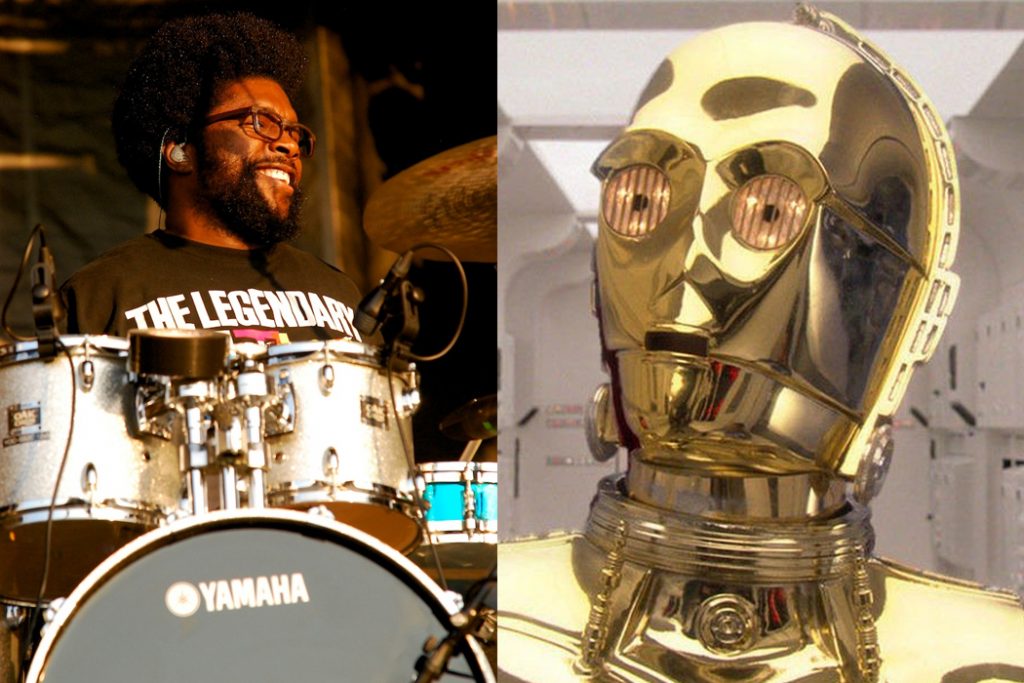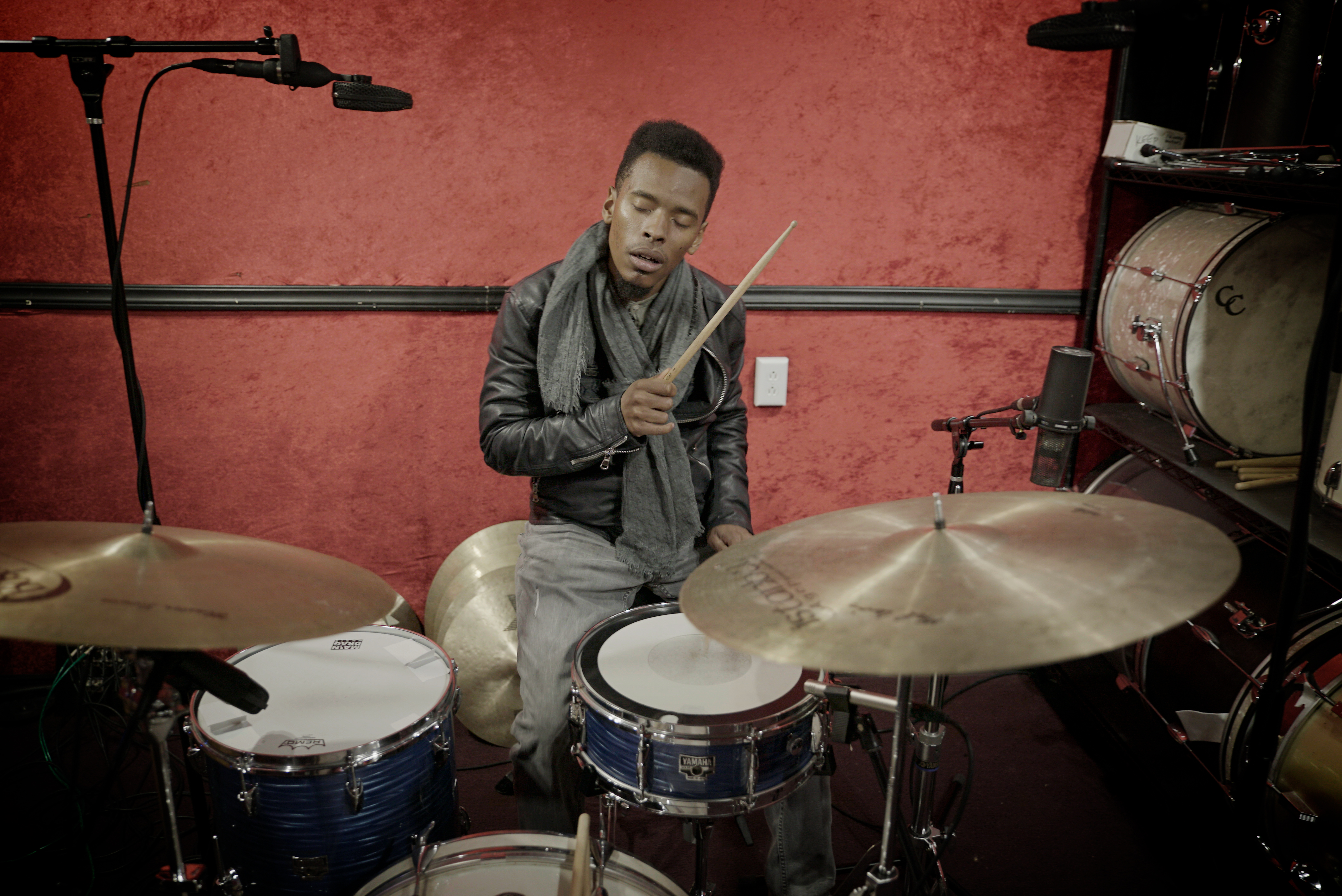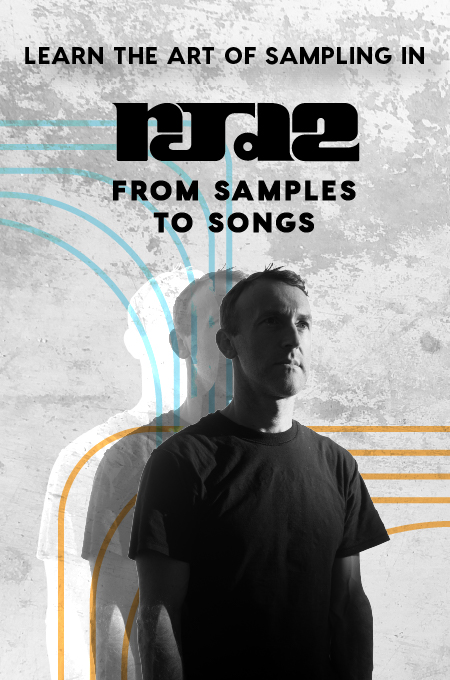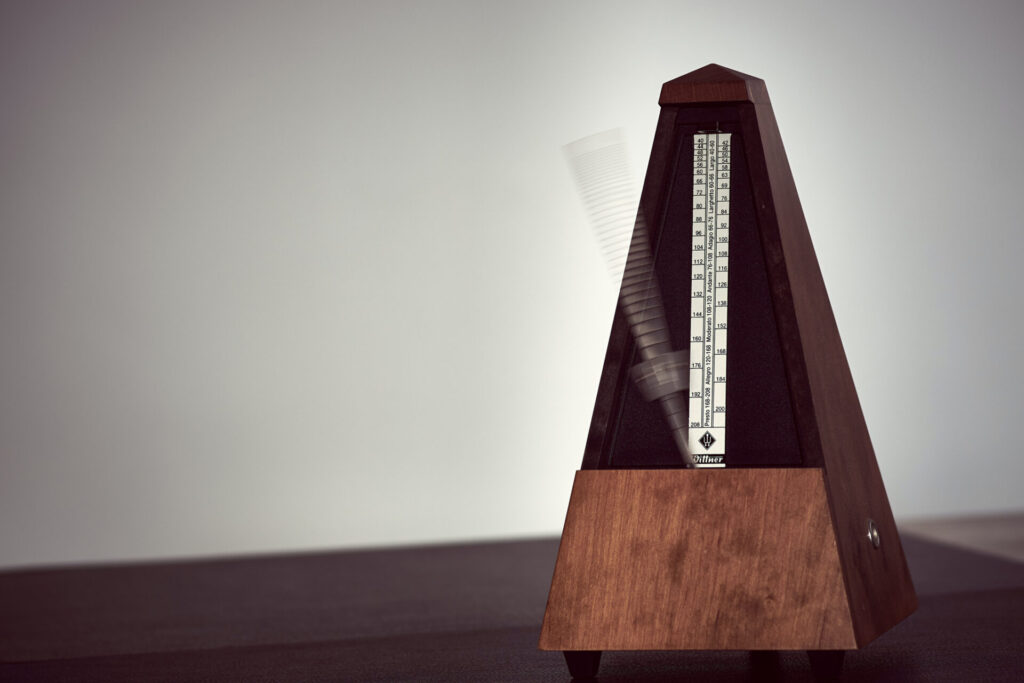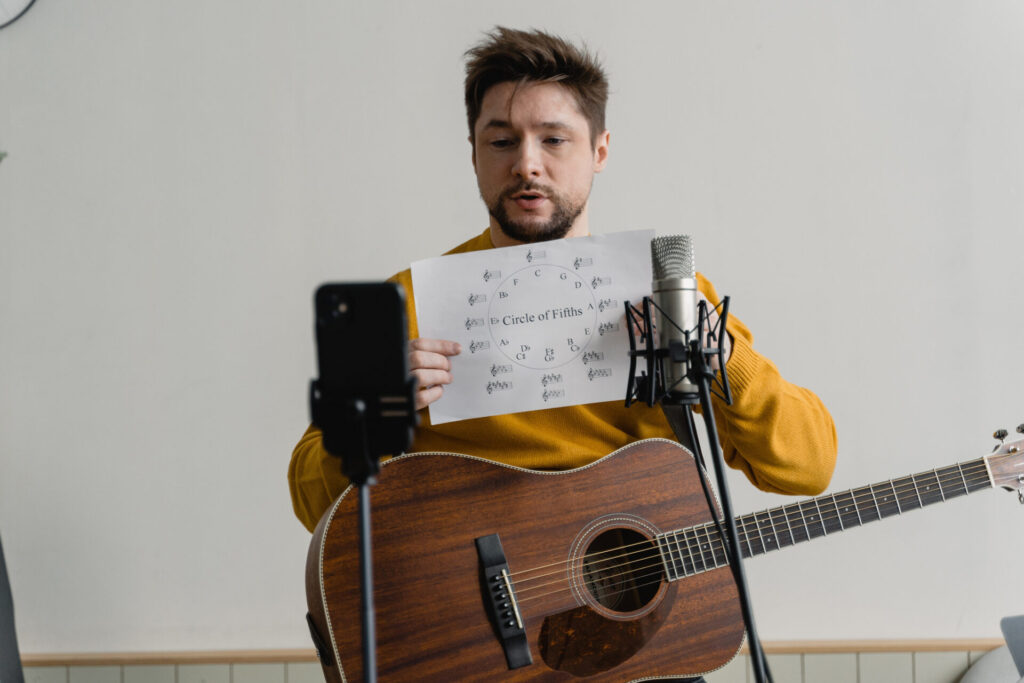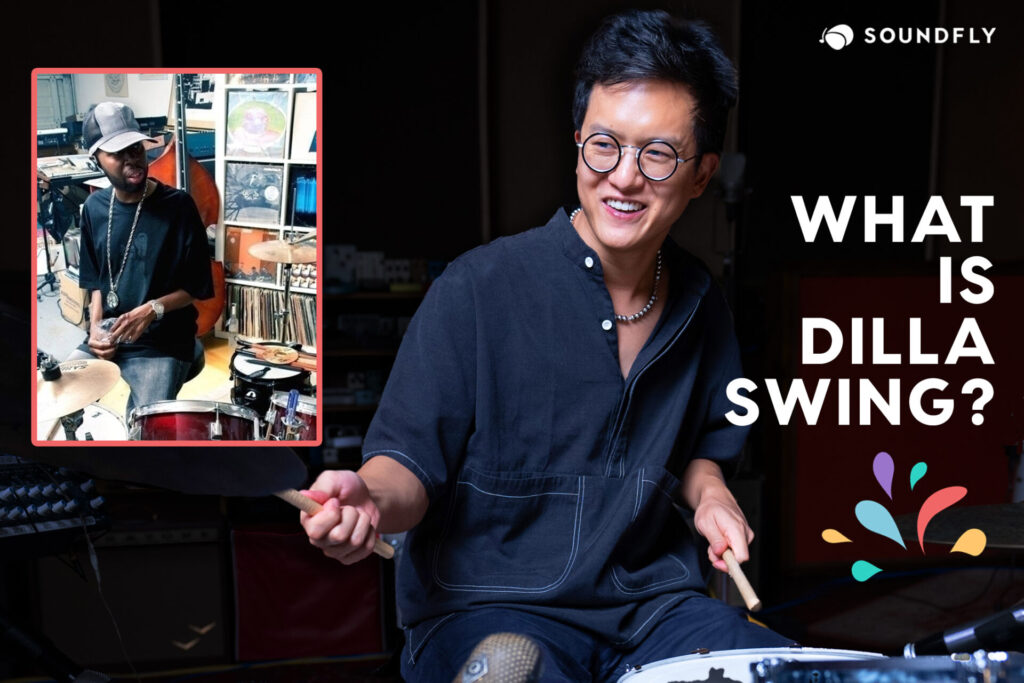+ Learn to craft more compelling beats and warped, broken rhythms with Son Lux’s Ian Chang. His innovative course is out now on Soundfly.
What lies ahead for the future of drumming? Will drummers be replaced forever? This is no new conversation topic in world of musicians by any means, but it has been recently rejuvenated to some degree, so let’s talk about it!
Drums are the heartbeat of every style of music. Almost every song you listen to is bound to have a drum pattern, a beat, or a rhythm of some kind, that guides the music and holds it all together. Beats drive an authentic, energetic connection that makes people want to people want to dance and move to the music, simply connect with a song’s sense of time flow.
But, that said, how important is it to have a real drummer?
After all, it’s never been easier for songwriters and producers to create realistic artificial drum parts. The plethora of authentic sounding programmed drum VSTs on the market is staggering. One could argue there is no need to hire a real drummer anymore. So what might this mean for drummers in the future?
Who Needs a Session Drummer, Anyway?
The drums are an extraordinarily versatile instrument; there is no denying they have their place in all types of music. The demand for drummers since the drum kit’s inception in recent history has always been pretty high.
It was in the 1970s that drum machines were brought to the forefront of popular music. Drum machines and synthesized drum sounds have since changed music forever. Drummers originally welcomed drum machines and sequencers because it was initially they who felt they needed to adapt to changing times, and who programmed these early beats.
It wasn’t until the 1980s that people began saying that electronic drum machines would replace real drummers. But during these years, drum machines still sounded, well, robotic. They could never challenge the sounds captured from a world-class drum session, with the best hardware, microphones, and players creating magic in real time.
Fast forward to today, however, and it turns out the vast majority of recorded music takes advantage of synthesized drums; and they actually sound real! The demand for session drummers has diminished vastly. Programmed drums are more affordable, easier to work with through MIDI, and most importantly, they sound convincing enough to be professionally recorded drums.
The Meteoric Rise of Beat Making
We as creatives have embraced music production tools that can be operated from laptops without the need for a world-class recording studio. Everyone has access to recording software that is compatible with intelligent and powerful virtual drum software.
Drum programming is now a fundamental skill for any producer. Drum VSTs enable producers and songwriters to compose professional sounding and unbelievably realistic drum parts. Huge sound libraries often feature a broad range of samples that are perfectly suited for any style of music.
No drumming ability is required for programming drums today. Loading samples, quantizing, beat replacement, and humanized looping are just some of the tasks that can be performed with the touch of a button on a computer. Not to mention…
Recording Real Drums Is a Mammoth Task
What has led to this shift in the music industry is that, put simply, recording drums is one of the most challenging tasks within the realm of sound recording. It’s astonishingly time consuming and expensive. To obtain great sounding drum recordings you need a great sounding room, the best drums and cymbals you can get your hands on, an array of drum microphones, and of course you need a great drummer to play his or her part perfectly.
Creating artificial drum parts on a computer is not only exceedingly more affordable and quicker, producers have much more freedom and flexibility during the creative process. The on the fly approach of programming drums makes it far easier to edit and manipulate beats within an arrangement to accommodate for spontaneous new ideas.
After all, being self-sufficient provides musicians with both greater financial and creative control.
+ Learn production, composition, songwriting, theory, arranging, mixing, and more; whenever you want and wherever you are. Subscribe for full access!
Where Is the Real Human Element?
Whilst there are significant benefits of programmed drums, over time we are becoming ever increasingly conditioned to hearing mechanical and perfect sounding drum parts. Everything we hear is literally quantized perfectly to the grid. Even real drummers are no longer satisfied unless their recordings sound this way.
Listeners are so accustomed to hearing perfectly timed drums — this has transpired through constant exposure to all types of popular music. But ultimately, this is not what a real drummer even should sound like. I personally think artificial drums sound stale and lifeless without a human essence. A real drummer has more to offer than a computer or drum machine; each drummer has a unique flair and an individual musical voice that should have the freedom to be expressed.
The organic feel of a real drummer should be regarded as superior to a machine. Music is about emotion and it should be created authentically. Substituting the human emotion, feeling, groove, spirit, and passion with a computer surely defeats the purpose of music altogether.
How Modern Drummers Are Adapting
The drum is the world’s oldest instrument. It’s been found in every human culture found to ever exist. Electronic drums and samples will always aim to imitate the sound of real drums, but professional drummers are also learning to adapt to the evolving modern music industry.
Drummers today are adding electronic drums to a live setup through using triggers, which bridge the gap between acoustic and electronic drums. Drum triggers attach to acoustic drums and feed into a drum module, that is able to trigger any sound sample when the drum is struck.
Drum triggering opens up limitless creative opportunities for drummers of all styles. Professional drummers use drum triggers to replicate authentic drum tones that appear on hit records to reproduce true-to-life versions of songs that fans expect to hear at shows.
Adele’s live drummer Derrick Wright echoes this necessary aspect of modern music:
“Today’s music has changed. It’s evolving. There’s a lot of electronics in the music. You’ve got to stay authentic to the music and how it comes out on the records.”
What the Future Holds
Drum machines and virtual drumming software have profoundly transformed the way in which music is made. They have opened up a broad range of sounds and new creative opportunities. Drum machines and synthesized drum sounds have been integral to some of the most popular styles of music such as hip-hop, electronic dance music, and modern pop music.
Modern drum software is so tremendously advanced that most listeners are unable to tell the difference between programmed and real drums. Producers in all styles of music are relying heavily on artificial drums for the final mix. Session drummers have experienced a significant reduction in demand, but that demand has not completely diminished yet.
The crème de la crème of session drummers, such as the UK’s Ash Soan, will always be sought after.
Ultimately, drumming is fun. It’s an activity that people will always pursue — it’s one of the most popular musical instruments. Audiences also love watching drummers. The presence of a real drummer behind a professional drum set is an integral part of the live concert experience.
As for the idea of C-3PO ever holding a candle to a drummer like Questlove’s talent, well, I’m pretty skeptical about that…
Keep on Grooving…
Continue your learning with hundreds of lessons on songwriting, mixing, recording and production, composing, beat making, and more on Soundfly, with artist-led courses by Kimbra, Com Truise, Jlin, Kiefer, RJD2, and our new The Pocket Queen: Moving at Your Own Tempo.
